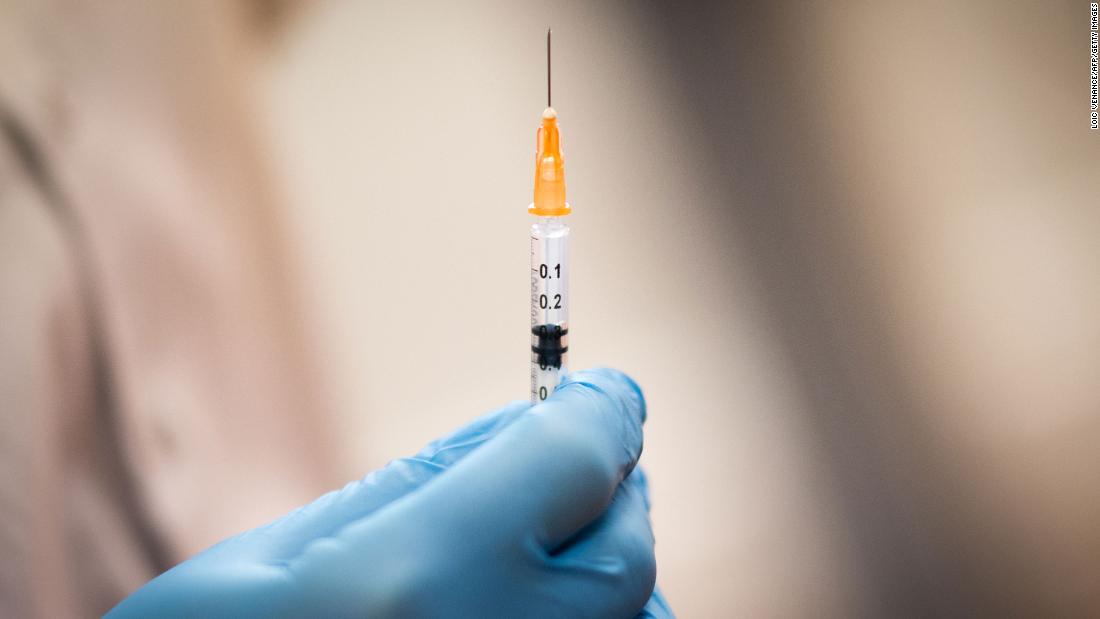Getting one, however, is still an ordeal for Walker, who has a needle phobia. “I’m going to start getting really wet and then sweating cold,” she said, describing her reaction to routine injections. “Then I pass out.”
Walker has lived in fear of getting injections for years. She remembers being terrified, at 12 or 13 years old, when receiving a flu vaccine at the doctor’s office.
Fortunately, experts say that treatments for needle phobia can be highly effective. Leaving the condition untreated, however, can result in a fear that becomes even more intense over time.
What is a phobia?
“Phobia is fear and anxiety about a specific stimulus,” explained Dr. Jeffrey Geller, president of the American Psychiatric Association and professor of psychiatry at the University of Massachusetts School of Medicine.
About 30% of people will have a lifetime anxiety disorder, said Geller. Of these, between 7% and 9% of individuals have a specific phobia.
Furthermore, the fear of needles goes beyond vaccines. Individuals with severe phobias can avoid medical care altogether, even if it means deteriorating health.
Can you handle fear alone?
For people with needle phobia who take injections despite their fears – like Walker – the experience can be unpleasant. Common symptoms include dizziness, fainting, insomnia, sweating, muscle tension and increased alertness.
Individuals with relatively mild fear of needles may be able to cope with their anxiety by practicing relaxation techniques on their own, explained Geller.
“There are many meditation techniques that can be taught,” he said, pointing to both meditation and yoga as useful practices.
Or you can invite a trusted friend or family member to join you, said Geller, even though they cannot accompany you to the procedure room. “Come for the injection with a support person,” he said, adding that practicing relaxation techniques with your support person can help reinforce this coping mechanism.
Anxiolytic drugs are another option. Although most are available only with a prescription, an over-the-counter option is diphenhydramine, an antihistamine that is commonly known by the trade name Benadryl.
Although the drug is generally used for allergies, it can have a sedative effect that can help reduce anxiety. (Even for over-the-counter medications, it is essential to consult a primary care provider before using, said Geller.)
When to seek help for needle phobia
Although the above techniques can make a big difference when it comes to calming the nerves in relation to needles, grown phobias require professional help.
Among the most popular approaches is cognitive-behavioral therapy, a collaborative process in which individuals work with providers to change their thoughts and behaviors.
Of all the methods he uses to treat phobias and anxiety in his office in South Pasadena, California, psychologist Jeff Prater said that CBT is the most common. Over a series of sessions, Prater teaches patients how to use relaxation techniques while gradually confronting their fears.
“The general approach is to create a hierarchy, starting with something that doesn’t cause them any anxiety, and then building that hierarchy to the most dire situation they can imagine linked to their needle phobia,” said Prater.
At first, he said, this may mean practicing relaxation in a room where a needle is closed in a drawer.
“As soon as they can think about it without any anxiety, I will open the drawer,” he said. “Then I’m going to put it on the table. They’ll see it. And then we move progressively closer to the point where they actually catch it.”
Why it’s important to deal with your needle phobia now
Between four and 10 sessions are enough to effectively treat needle phobia for most people, said Prater. With Covid-19 vaccination available in the coming months, this means that it is important to seek help for needle phobia as soon as possible.
If you ignore the problem, you may experience more years of anxiety. Leaving your phobia untreated can mean symptoms that get worse over time. While many children lose their fear of needles as they progress into adulthood, overgrown phobias tend to become more severe with age, said Prater.
It is a kind of feedback loop. “What drives anxiety is avoidance,” said Prater. “When you avoid this situation, your anxiety temporarily decreases. But then, when you are faced with that situation again, your anxiety recovers. And it doesn’t just recover to the same level – it actually increases.”
Only by facing anxieties head-on can an individual stop the progression of this feedback loop, said Prater.
That’s what Walker, the fourth-year medical student, did. When she gets a flu shot each year, she sure informs the person who is giving the vaccines that she can pass out later. But she always moves on and has found that deep breathing techniques can help.
“I always say ‘OK, I’m getting better, I know what to expect, I know how it works’. It got better, “she said.
As part of her education, Walker also injects regularly and she said she thinks of work as a kind of exposure therapy. Inserting intravenous needles triggers her needle phobia, but she persevered. To the extent that Walker’s education requires her to continually face her phobia, it resembles, in some ways, the therapy that Prater offers to his own patients.
Walker plans to become a pediatrician, and she has worked with many young patients for fear of receiving their annual vaccinations. Her own needle-phobia experience, she said, is a source of empathy that she can use to better connect with them.
“I usually say to them, ‘It’s okay, I’m also very nervous. But I’m still going to be a doctor. If I can be a doctor, you can have this injection, ‘”she said. “It’s okay to be afraid.”
Jen Rose Smith is a Vermont based writer. Find her work at jenrosesmith.com, or follow her on Twitter @jenrosesmithvt.
